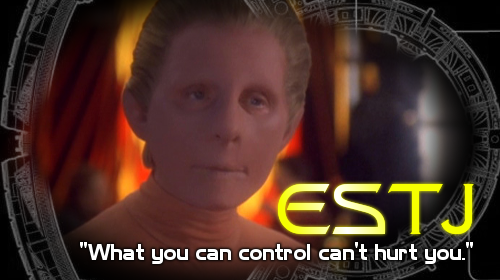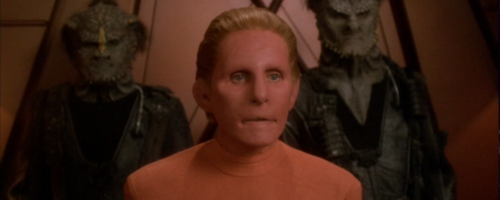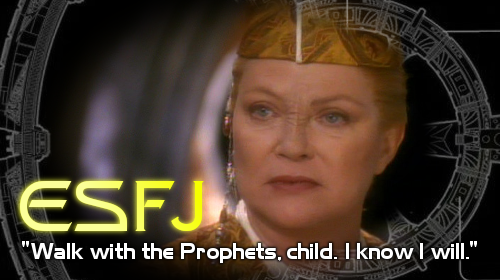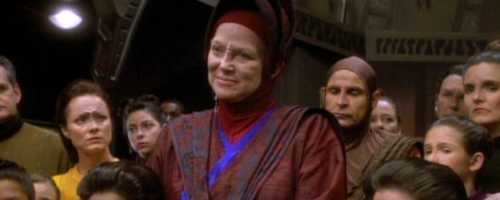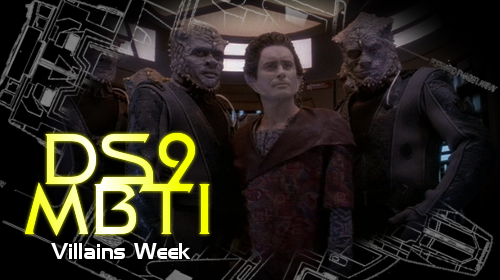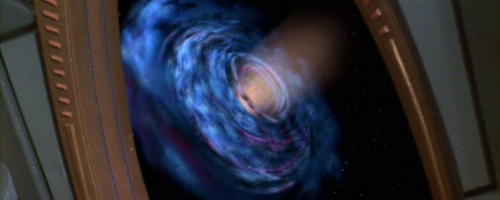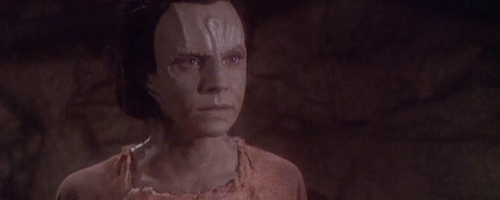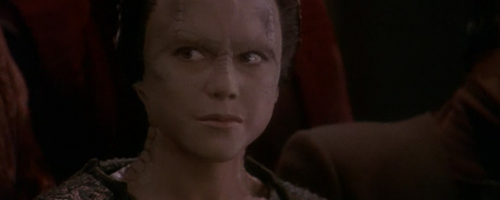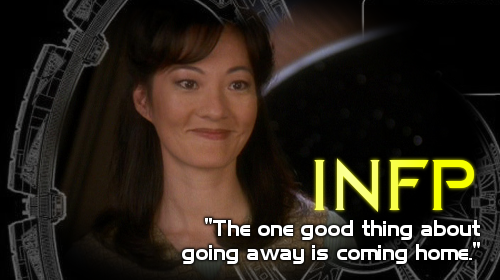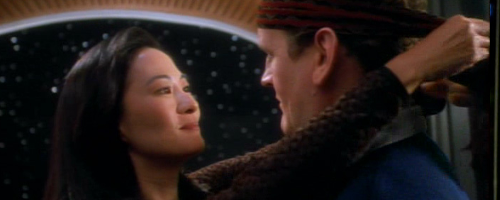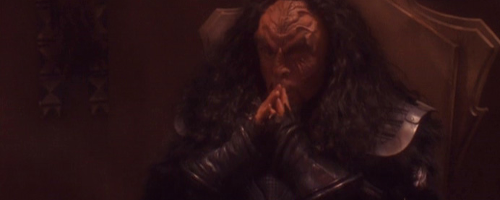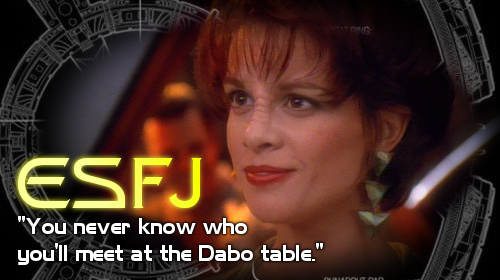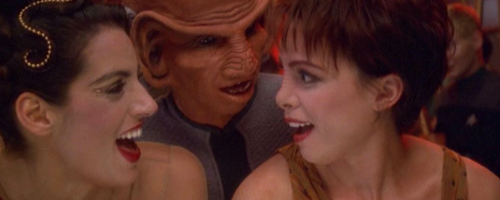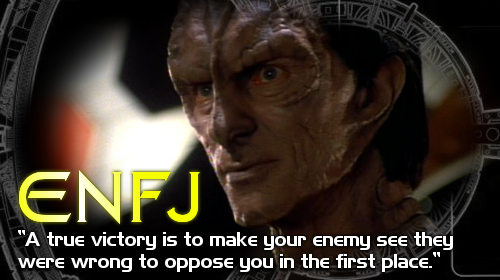
ENFJ – the Giver, the Mentor, the Believer
I’ve no idea if it says anything about the franchise that the biggest nemeses in two different Star Treks are ENFJs. Even TNG had Lore, the ENFJ cult leader. Seems like Star Trek may have a running theme about the dangers of following crazed, charismatic leaders with big but empty promises.
(P.S. I feel really gross using my cheesy terms like “Believer” and “The Garden Fountain” for someone like Dukat, but that’s the format.)
Dominant Function: (Fe) Extraverted Feeling, “The Garden Fountain”

Gul Dukat needs to be loved. We all do, of course. Dukat, however, lives and breathes off the adoration, honor, praise, and hero-worship of others—which he never gets.
Back when he was made Prefect of Bajor during the Occupation, Dukat believed a gentler approach was needed. He enacted policies to ease the burden on labor camp workers, but strangely, the Bajorans failed to show appreciation for his compassion. They seemed to dislike being occupied by an invading force no matter how nice he was about it. They continued to resist him, and Dukat felt compelled to strike back and punish their ingratitude.
This cycle describes much of Dukat’s life and career. He wants to lead, but when his subjects or fellow leaders don’t like him, he struggles. He either overcompensates and looks desperate, or lashes out and becomes the angry tyrant he claims not to be. Continue reading


